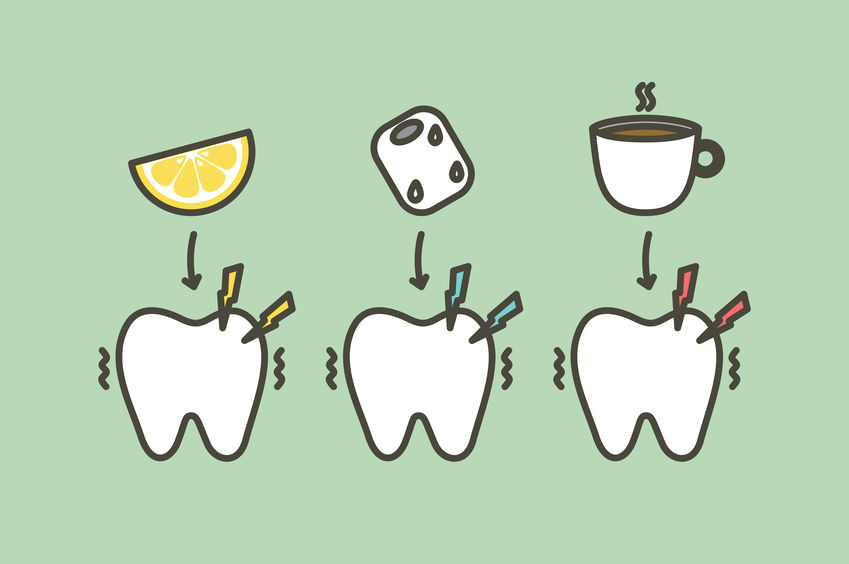Chattanooga Family Dentist Talks Sensitive Teeth

Odds are that at one point or another you’ve experienced pain or discomfort after taking a bite of fresh-from-the-freezer ice cream or a heaping spoonful of super hot soup. This sensation is linked to tooth sensitivity. Although pain caused by hot or cold food and drink can sometimes be a sign of a dental problem, your Chattanooga family dentist will also tell you it could just be the result of having sensitive teeth.
Tooth sensitivity is also known as “dentin hypersensitivity,” and can be a temporary issue or a chronic problem depending on the patient and circumstances. You may notice your teeth are sensitive to specific stimuli, like extreme temperatures. Sometimes these symptoms come and go or range in severity from mild to intense. Common triggers for tooth sensitivity include:
- Hot food and beverages
- Cold food and beverages
- Cold air (noticed when inhaling through the mouth)
- Sweet, sugary food and beverages
- Food and beverages that are particularly acidic
- Cold water spray or cold air used during dental procedures
- Brushing and flossing
Potential Causes of Tooth Sensitivity
Some dental patients experience tooth sensitivity because of a naturally thinner layer of enamel than is common. The enamel is the outermost layer of the tooth that serves to protect it from outside elements that cause decay. Sometimes other factors cause the enamel to wear and break down over time. Such factors include:
- Overly-aggressive teeth brushing
- Using a hard toothbrush
- Regular consumption of acidic food and drink
- Grinding your teeth at night
- Gastroesophageal reflux (GERD)

Other factors such as gum recession, tooth decay, broken or chipped teeth, and worn down, damaged fillings or crowns can also result in exposed dentin, causing tooth sensitivity. If this is the case, you’ll likely only feel sensitivity in that one area of the mouth as opposed to a general feeling of sensitivity. Sometimes dental work can leave the teeth feeling sensitive for a few days post procedures, and whitening efforts can have a similar effect. That said, in cases such as these, symptoms tend to reside quickly.
If you are experiencing tooth sensitivity for the first time, you should make an appointment with your Chattanooga family dentist. When you have a routine dental cleaning and/or exam, your dentist can check for potential issues that could be causing your tooth pain. Cavities, recessed gums, or loose fillings could be the culprit. Regardless of the cause, your dentist can help you find relief for the sensitivity you’re experiencing via several different treatment options.
Tooth Sensitivity Treatments
Your Chattanooga family dentist will assess your dental sensitivity, and make treatment suggestions based on what the root cause may be. For example, if you’re suffering from the symptoms of GERD, acid reducers can help treat the symptoms of that ailment, while also helping to safeguard your tooth enamel in the process. If receding gums may be the cause, your dentist may suggest you use a different type of toothbrush or methods of oral hygiene, or if severe enough, may suggest a gum graft course of treatment. Treatment may be as simple as switching the type of toothpaste or mouthwash you’re using.
No matter what the cause of your tooth sensitivity, the staff at Tedford Family Dentistry wants to help you resolve it. Contact our today to schedule an appointment. Relief is achievable, and we want to help you find it!
